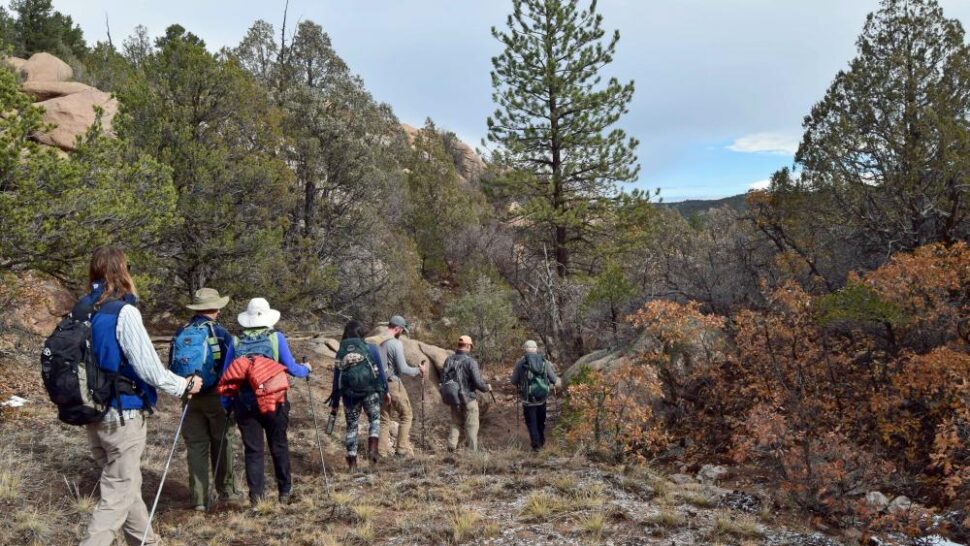The MAPland Act, introduced by U.S. Rep. Blake Moore more than a year ago, has finally been signed into law by President Joe Biden.
WASHINGTON, D.C. – The Modernizing Access to our Public Land (MAPLand) Act is now a law, according to U.S. Rep. Blake Moore (R-UT).
“Today, President Joe Biden signed the LAPLAND Act into law!” Moore said on April 29.
“This is a major win for all who enjoy our public lands,” Moore added. “Many thanks to all who helped get this (legislation) across the finish line.”
The MAPLand Act will direct federal land management agencies to digitize and standardize mapping records. This will allow hunters, hikers, bikers, anglers and millions of other federal land users to access essential information about public lands.
The law will also help federal land management agencies identify public lands with limited or nonexistent public access points and take proactive steps to open them to the public.
Biden signed the MAPland Act more than a year after its introduction in the U.S. House of Representatives.
Moore is one of only four freshman congressmen to get a bill signed into law. He credits a non-partisan collation for that successful effort, including Representatives Russ Fulcher (R-ID), Joe Neguse (D-CO) and Kim Schrier (D-WA) for that win.
But Rep. Bruce Westerman (R-AR) also attributes that accomplishment to Moore’s leadership and tenacity as a member of Congress.
Westerman is the ranking GOP representative on the House Committee on Natural Resources.
“MAPland is practical, bipartisan legislation that will benefit not only Utah,” Westerman said, “but also every American who enjoys open access to public lands. I look forward to seeing it put in action.”
Despite that triumph, Moore is fighting for his political life after a poor showing at the state nominating convention on April 23.
After three rounds of balloting, former civilian intelligence officer Andrew Badger narrowly missed capturing the party’s nomination with 59.2 percent of the ballots cast as opposed to Moore’s 40.7 percent.
In contrast to Moore’s hard-earned reputation for bipartisanship, the GOP delegates seemed to reward Badger’s fiery rhetoric promising no compromise with Democrats.
Currently, more than 9.52 million acres of land in the West lack permanent and legal access points for public use and information on these lands is still kept on paper files.
Moore’s staff members say that only approximately 5,000 of the Forest Service’s 37,000 recorded easements have been digitized and uploaded to an electronic database.
The MAPLand Act will help give federal land management agencies the resources they need to digitize these files for public use, as well as requiring these agencies to provide information on seasonal vehicle restrictions on public roads and trails, hunting boundaries and watercraft restrictions.
“I look forward to the many ways this law will improve our access to public land records,” Moore said, “so that we can better hunt, fish, hike and more.”
It remains to be seen, however, how Moore’s well-deserved reputation for bipartisanship will play with Utah voters.
Moore will now face off against Badger and former Morgan County commissioner Tina Cannon in the June 28 Republican primary voting.
Cannon had already secured a spot on the primary ballot by collecting voter signatures.

